The ITIL Intermediate Qualification: Service Transition Certificate is a free-standing qualification, but is also part of the ITIL Intermediate Lifecycle stream, and one of the modules that leads to the ITIL Expert Certificate in IT Service Management. The purpose of this training module and the associated exam and certificate is, respectively, to impart, test, and validate the knowledge on industry practices in service management as documented in the ITIL Service Transition publication.
ITIL Intermediate Service Transition
Original price was: ₹27,000.00.₹25,000.00Current price is: ₹25,000.00.
- Introduction to service transition
- Full understanding of service design terms and core concepts.
- The purpose and objectives of service transition
- The scope of service transition and ways that service transition adds value to the business
- The context of service transition in relation to all other lifecycle stages
- Full understanding of service design terms and core concepts.
- Service transition principles
- The knowledge, interpretation and analysis of service transition
principles, techniques and relationships and their application to ensure new, modified or retired services meet the expectations of the business.- Service transition policies, principles and best practices for service transition
- How to use metrics to ensure the quality of a new or changed service and the effectiveness and efficiency of service transition
- The inputs to and outputs from service transition as it interfaces with the other service lifecycle phases
- The knowledge, interpretation and analysis of service transition
- Service transition processes
- The knowledge, interpretation and analysis of service transition
principles, techniques and relationships and their application to ensure new, modified or retired services meet the expectations of the business.- The interaction of service design processes
- The flow of service design as it relates to the business and customer
- The five design aspects and how they are incorporated into the service design process
- The knowledge, interpretation and analysis of service transition
- Managing people through service transitions
- The knowledge, interpretation and analysis of service transition
principles, techniques and relationships and their application to ensure new, modified or retired services meet the expectations of the business.- How to address and manage the communication and commitment aspects of service transition
- How to manage organizational and stakeholder change
- How to develop a stakeholder management strategy, map and analyse stakeholders and monitor changes in stakeholder commitment
- The knowledge, interpretation and analysis of service transition
- Organizing for service transition
- The knowledge, interpretation and analysis of service transition
principles, techniques and relationships and their application to ensure new, modified or retired services meet the expectations of the business.- How the technical and application management functions interface with service transition
- The interfaces that exist between service transition and other organizational units (including programmes, projects, service design and suppliers) and the “handover points” required to ensure delivery of new or change services within the agreed schedule
- Service transition roles and responsibilities, where and how they are used, as well as examples of how small or larger service transition organizations would be structured to use these roles
- Why service transition needs service design and service operation, what it uses from them and how
- The knowledge, interpretation and analysis of service transition
- Technology considerations
- The knowledge, interpretation and analysis of service transition
principles, techniques and relationships and their application to ensure new, modified or retired services meet the expectations of the business.- Technology requirements that support the service transition stage and its integration into the service lifecycle
- Types of knowledge management, service asset and configuration management and workflow tools that can be used to support service transition
- The knowledge, interpretation and analysis of service transition
- Implementation and improvement of service transition
- The knowledge, interpretation and analysis of service transition
principles, techniques and relationships and their application to ensure new, modified or retired services meet the expectations of the business.- The key activities for introducing an integrated service transition approach into an organization
- The design, creation, implementation and use of service transition in a virtual or cloud environment
- The knowledge, interpretation and analysis of service transition
- Challenges, critical success factors and risks
- The knowledge, interpretation and analysis of service transition
principles, techniques and relationships and their application to ensure new, modified or retired services meet the expectations of the business.- Be able to provide insight and guidance for design challenges, risks and critical success factors
- The knowledge, interpretation and analysis of service transition
• Chief information officers (CIOs)
• Chief technology officers (CTOs)
• Managers
• Supervisory staff
• Team leaders
• Service designers
• IT architects
• IT planners
• IT consultants
• IT audit managers
• IT security managers
Prerequisite Entry Criteria
Candidates wishing to be trained and examined for this qualification must already hold the ITIL Foundation Certificate in IT Service Management which must be presented as documentary evidence to gain admission Candidates who hold the following ITIL qualifications are also eligible, and similar evidence will be required:
• Earlier ITIL (V2) Foundation plus Foundation Bridge
• ITIL Expert Certificate in IT Service Management (achieved via Service Manager or Practitioner bridging routes).
Eligibility for Examination
To be eligible for the ITIL Intermediate Qualification: Service Transition examination, candidates must have fulfilled the following requirements:
• At least 21 contact hours (hours of instruction, excluding breaks, with an Accredited Training Organization (ATO) or an accredited e-learning solution) for this syllabus, as part of a formal, approved training course/scheme
• A basic IT literacy and around 2 years IT experience are highly desirable
• Hold the ITIL Foundation Certificate in IT Service Management
• It is also recommended that candidates should complete at least 21 hours of personal study by reviewing the syllabus and the ITIL Service Transition publication in preparation for the examination
Format of the Examination
- Type: Eight (8) multiple choice, scenario-based, gradient-scored questions.
Each question will have 4 possible answer options, one which is worth 5
marks, one which is worth 3 marks, one which is worth 1 mark, and one which
is a distracter and achieves no marks. - Duration Maximum 90 minutes for all candidates in their respective language
Provisions for Additional Time relating to language, Candidates completing an exam in a language that is not their mother tongue have a maximum of 120 minutes to complete the exam and are allowed the use of a dictionary. - Supervised Yes
- Open Book No
- Pass Score 28/40 or 70%
Overview
ITIL Intermediate Service Transition Training & Certification
The ITIL Intermediate Qualification: Service Transition Certificate is a free-standing qualification, but is also part of the ITIL Intermediate Lifecycle stream, and one of the modules that leads to the ITIL Expert Certificate in IT Service Management. The purpose of this training module and the associated exam and certificate is, respectively, to impart, test, and validate the knowledge on industry practices in service management as documented in the ITIL Service Transition publication.
Course Outline
ITIL Intermediate Service Transition Training & Certification
-
Introduction to service transition
- Full understanding of service design terms and core concepts.
- The purpose and objectives of service transition
- The scope of service transition and ways that service transition adds value to the business
- The context of service transition in relation to all other lifecycle stages
- Full understanding of service design terms and core concepts.
-
Service transition principles
- The knowledge, interpretation and analysis of service transition
principles, techniques and relationships and their application to ensure new, modified or retired services meet the expectations of the business.- Service transition policies, principles and best practices for service transition
- How to use metrics to ensure the quality of a new or changed service and the effectiveness and efficiency of service transition
- The inputs to and outputs from service transition as it interfaces with the other service lifecycle phases
- The knowledge, interpretation and analysis of service transition
-
Service transition processes
- The knowledge, interpretation and analysis of service transition
principles, techniques and relationships and their application to ensure new, modified or retired services meet the expectations of the business.- The interaction of service design processes
- The flow of service design as it relates to the business and customer
- The five design aspects and how they are incorporated into the service design process
- The knowledge, interpretation and analysis of service transition
-
Managing people through service transitions
- The knowledge, interpretation and analysis of service transition
principles, techniques and relationships and their application to ensure new, modified or retired services meet the expectations of the business.- How to address and manage the communication and commitment aspects of service transition
- How to manage organizational and stakeholder change
- How to develop a stakeholder management strategy, map and analyse stakeholders and monitor changes in stakeholder commitment
- The knowledge, interpretation and analysis of service transition
-
Organizing for service transition
- The knowledge, interpretation and analysis of service transition
principles, techniques and relationships and their application to ensure new, modified or retired services meet the expectations of the business.- How the technical and application management functions interface with service transition
- The interfaces that exist between service transition and other organizational units (including programmes, projects, service design and suppliers) and the “handover points” required to ensure delivery of new or change services within the agreed schedule
- Service transition roles and responsibilities, where and how they are used, as well as examples of how small or larger service transition organizations would be structured to use these roles
- Why service transition needs service design and service operation, what it uses from them and how
- The knowledge, interpretation and analysis of service transition
-
Technology considerations
- The knowledge, interpretation and analysis of service transition
principles, techniques and relationships and their application to ensure new, modified or retired services meet the expectations of the business.- Technology requirements that support the service transition stage and its integration into the service lifecycle
- Types of knowledge management, service asset and configuration management and workflow tools that can be used to support service transition
- The knowledge, interpretation and analysis of service transition
-
Implementation and improvement of service transition
- The knowledge, interpretation and analysis of service transition
principles, techniques and relationships and their application to ensure new, modified or retired services meet the expectations of the business.- The key activities for introducing an integrated service transition approach into an organization
- The design, creation, implementation and use of service transition in a virtual or cloud environment
- The knowledge, interpretation and analysis of service transition
-
Challenges, critical success factors and risks
- The knowledge, interpretation and analysis of service transition
principles, techniques and relationships and their application to ensure new, modified or retired services meet the expectations of the business.- Be able to provide insight and guidance for design challenges, risks and critical success factors
- The knowledge, interpretation and analysis of service transition
Who Should Attend
ITIL Intermediate Service Transition Training & Certification
Chief information officers (CIOs)
• Chief technology officers (CTOs)
• Managers
• Supervisory staff
• Team leaders
• Service designers
• IT architects
• IT planners
• IT consultants
• IT audit managers
• IT security managers
Exam Information
ITIL Intermediate Service Transition Training & Certification
Prerequisite Entry Criteria
Candidates wishing to be trained and examined for this qualification must already hold the ITIL Foundation Certificate in IT Service Management which must be presented as documentary evidence to gain admission Candidates who hold the following ITIL qualifications are also eligible, and similar evidence will be required:
• Earlier ITIL (V2) Foundation plus Foundation Bridge
• ITIL Expert Certificate in IT Service Management (achieved via Service Manager or Practitioner bridging routes).
Eligibility for Examination
ITIL Intermediate Service Transition Training & Certification
To be eligible for the ITIL Intermediate Qualification: Service Transition examination, candidates must have fulfilled the following requirements:
• At least 21 contact hours (hours of instruction, excluding breaks, with an Accredited Training Organization (ATO) or an accredited e-learning solution) for this syllabus, as part of a formal, approved training course/scheme
• A basic IT literacy and around 2 years IT experience are highly desirable
• Hold the ITIL Foundation Certificate in IT Service Management
• It is also recommended that candidates should complete at least 21 hours of personal study by reviewing the syllabus and the ITIL Service Transition publication in preparation for the examination
Format of the Examination
ITIL Intermediate Service Transition Training & Certification
- Type: Eight (8) multiple choice, scenario-based, gradient-scored questions.
Each question will have 4 possible answer options, one which is worth 5
marks, one which is worth 3 marks, one which is worth 1 mark, and one which
is a distracter and achieves no marks. - Duration Maximum 90 minutes for all candidates in their respective language
Provisions for Additional Time relating to language, Candidates completing an exam in a language that is not their mother tongue have a maximum of 120 minutes to complete the exam and are allowed the use of a dictionary. - Supervised Yes
- Open Book No
- Pass Score 28/40 or 70%
ITIL Expert Managing Across the Lifecycle http://www.info-savvy.com/product/itil-expert-managing-across-the-lifecycle/
ITIL Foundation http://www.info-savvy.com/product/itil-foundation/
ITIL Intermediate Continual Service Improvement http://www.info-savvy.com/product/itil-intermediate-continual-service-improvement/
ITIL Intermediate Operational Support And Analysis http://www.info-savvy.com/product/itil-intermediate-operational-support-and-analysis/
ITIL Intermediate Planning Protection And Optimization http://www.info-savvy.com/product/itil-intermediate-planning-protection-and-optimization/
You must be logged in to post a review.

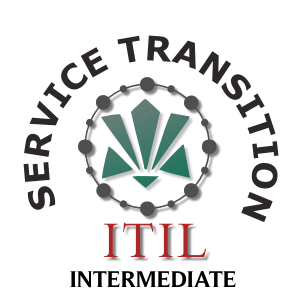



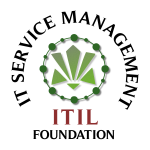
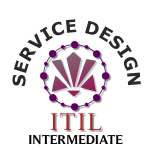
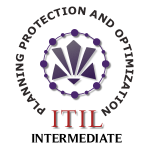

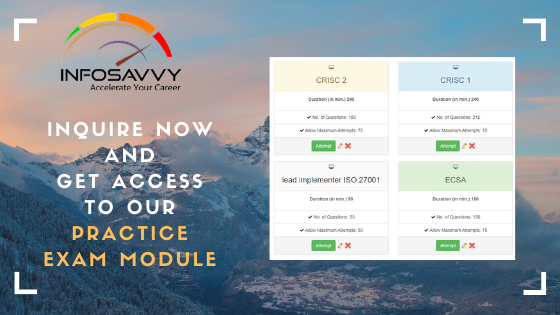
Reviews
There are no reviews yet.